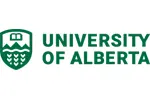We're moving! This site will be relocating to goingto.university in 2026. Please update your bookmarks to the new address.


Award: Master of Science
The Department of Communication Sciences and Disorders offers a program leading to the Master of Science degree in Speech-Language Pathology (MScSLP).
The MSc program is designed to develop competencies in the prevention, evaluation, treatment, and management of articulation, language, fluency, voice, and resonance disorders as well as in the fundamental practices of audiology. Developed for students who hold an undergraduate degree in a variety of fields other than speech-language pathology, this entry-level program offers a course-based master's and an optional thesis-based track and is designed to provide students with the academic and clinical education required for certification by provincial and national professional associations.
The MScSLP program is currently offered at two campus locations: Edmonton and Augustana (Camrose). Of the students admitted to the program, a portion are admitted to our Edmonton and Augustana campuses based on student preference. With MScSLP's distributed education model, students at all campuses complete the same core program of required courses. Each campus may offer unique elective opportunities reflective of local expertise and community partnerships in addition to the online electives available to all.
The thesis-based MSc in Speech-Language Pathology program is designed to provide speech-language clinicians with the research skills needed to study the etiology, prevention, diagnosis, and management of speech, language, and hearing disorders. Students will undertake thesis research to enhance their abilities to take leadership roles in academic, clinical, and laboratory settings.
The Department maintains laboratory, instrumentation, and clinical facilities for a wide range of research interests (e.g., speech science, motor speech disorders, voice, language development and disorders, craniofacial anomalies, hearing disorders, and clinical supervision).
An Interprovincial Agreement between the Province of Alberta and the Province of Saskatchewan exists for the Department of Communication Sciences and Disorders. Contact the Department for further information.
For more detailed information on the program visit our Communication Sciences and Disorders website.
Entrance Requirements
The Department's minimum admission requirements are an undergraduate degree with an admission GPA of at least 3.3 on the 4-point scale from the University of Alberta, or an equivalent qualification and standing from a recognized institution. The admission GPA will be calculated on the last 60 units of graded coursework completed, or on the equivalent of the last two years of full-time graded coursework. However, the minimum grade point average of accepted applicants is usually substantially higher than 3.3.
Pre-requisite Courses
The following are prerequisite courses that prospective applicants must complete in their undergraduate degree or previous studies:
These courses are selected to provide speech-language pathology applicants with the background needed to succeed in the MScSLP program. These courses and associated knowledge/skills are prerequisites to the MScSLP program. To see a detailed list of prerequisite courses that can be used for credit at various universities, please refer to our Department Website.
Indigenous Perspectives in Canada:
All students admitted to the MScSLP program are required to complete a course focused on Indigenous perspectives, histories and/or experiences in Canada.
English Language Proficiency
Applicants who do not possess a degree or its academic equivalent from an academic institution recognized by the University of Alberta, in which the language of instruction is English must take an English Language Proficiency test.
Other Requirements:
Applicants must submit three letters of recommendation, a curriculum vitae, a statement of career interests, and complete an online situational judgment test (CASPer). Personal interviews may be used if deemed necessary in making final decisions.
Application Deadline:
The deadline for submitting applications for admission (including a listing of prerequisites completed and/or in progress) is February 1. For more information contact the Academic Advisor for Communication Sciences and Disorders.
Learn more about Speech-Language Pathology, MSc - at University of Alberta
Visit course webpageContact University of Alberta to find course entry requirements.
The University of Alberta offers a wide ranges of scholarships to international students. You will be evaluated for these scholarships when you apply for admission. Your eligibility will be based on your high school admission average at the time of your admission offer. We'll assess you for a match to the following three scholarships. If you are eligible for an admission-based scholarship we will contact you directly!
You can also apply for scholarships based on your application, including the President’s International Distinction Scholarship, awarded annually to 25 international students, worth up to CAN $120,000, over 4 years.
To find out more about scholarships click here.
There are 593 other courses listed from University of Alberta. A selection of these are displayed below:
University of Alberta main campus location is shown on the map below: